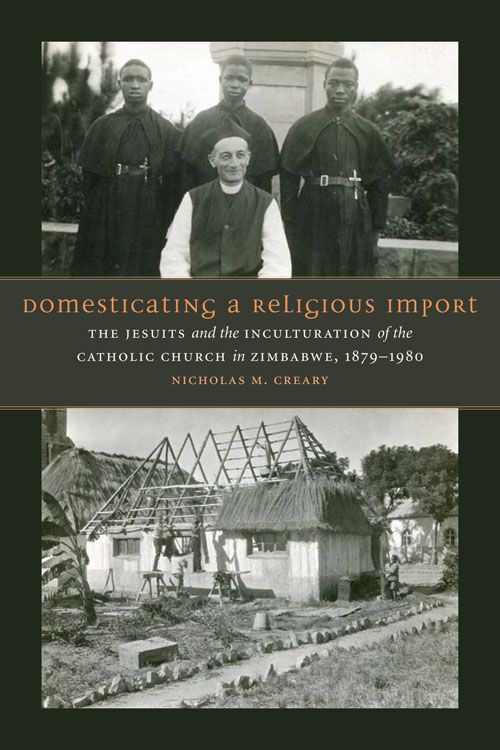Domesticating a Religious Import
The Jesuits and the Inculturation of the Catholic Church in Zimbabwe, 1879-1980

Catholic theologians have developed the relatively new term “inculturation” to discuss the old problem of adapting the church universal to specific local cultures. Europeans needed a thousand years to inculturate Christianity from its Judaic roots. Africans’ efforts to make the church their own followed a similar process but in less than a century. Until now, there has been no book-length examination of the Catholic church’s pastoral mission in Zimbabwe or of African Christians’ efforts to inculturate the church.
Ranging over the century after Jesuit missionaries first settled in what is now Zimbabwe, this enlightening book reveals two simultaneous and intersecting processes: the Africanization of the Catholic Church by African Christians and the discourse of inculturation promulgated by the Church. With great attention to detail, it places the history of African Christianity within the broader context of the history of religion in Africa. This illuminating work will contribute to current debates about the Catholic Church in Zimbabwe and throughout Africa.
This book, a reminder of the lasting impact of European missionaries in
Africa, is aimed at readers who believe that Africans have always
decided for themselves what to do with Christianity. Domesticating and
Import is telling us to wake up to the fact that there are limits to
inculturation. Coming as I do from the background world of converts to
Christianity described, it is no wonder I ended up on a search for the
meaning of Christianity in its long history in western cultures.
Nicholas Creary's book is thought provoking.
Challenging the view that Western missionaries colonized African minds, Creary explores the transformation of the Catholic Church from below, using colonial Zimbabwe as a case study. He examines the ways in which Shona people shaped the Church by incorporating African beliefs, symbols, and cultural practices and how the Church, in turn, responded to their initiatives. Creary’s book is innovative, insightful, and compelling. It is bound to have a significant impact on future scholarly interpretations of Christianity in Africa--and elsewhere in the colonized world.
One of the greatest challenges to the Church in the 20th and present century is to adapt cultural and sacramental life of a Rome-centered institution to non-European cultures. Professor Nicholas Creary's in-depth study of the Jesuits' attempts to establish the faith in Zimbabwe has much to teach us — especially if we can learn from our mistakes.
Creary's attentiveness to cultural and theological predispositions shaping both Zimbabweans and Jesuit missionaries allows him rich insights into their interactions. The study of African Christianity needs more studies like this one that shed light on the evolution of African Christian identity.

